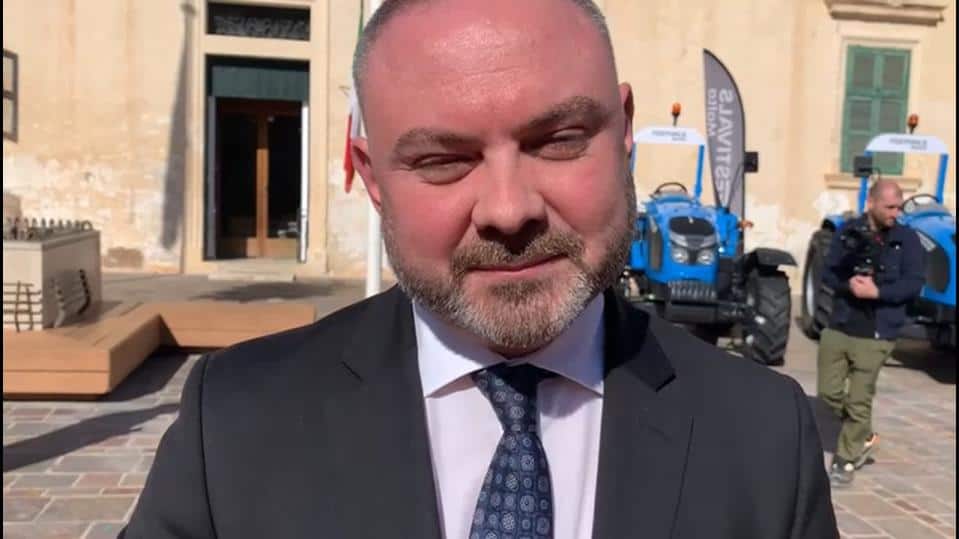
The government’s response in court to the challenge from the Council for the Maltese language is truly disgusting.
Quick sum-up for background. In a press statement the government announced the creation of a new entity and appointed former TVM editor Norma Saliba to head it. With the announcement came a legal notice that said that the new entity will work within, and for, the existing Council for the Maltese language.
Outside the innards of the esoteric corridors where the Maltese language is divined, we criticised the government’s move because it was a blatant act of cronyism. They needed to shut up Norma Saliba so they literally wrote a law to conjure an organisation to pay her a bribe in the form of a monthly retainer.
But within the Council the problem was different. The law sets up the Council and expects it to function reasonably autonomously from ministers. The minister, Owen Bonnici in the present, can make regulations about the administration of the Council but only after consulting the Council. The Council, through its president Olvin Vella, said it had not been consulted and went to court to claim the whole thing was invalid and needed to be redone, properly.
The government came back with screen shots from the WhatsApp account of a government official who one afternoon, apparently without warning, asked Olvin Vella if he was ok with an announcement that the new entity would be created. He replied with “Iva mela”. That is what the government is citing as evidence that they had consulted the Council and if the rest of the members of the Council felt they weren’t consulted they should blame that on their president. In response to that, many did. After all, Olvin Vella could have, should have spoken to them before he gave his consent.
A court may have to decide this issue while Norma Saliba collects her salary presumably working (if that’s what you’d call what she does) without reference to a Council that is supposed to be her boss but does not recognise her appointment.
We can still make some observations, in the meantime.
Firstly, if an exchange of WhatsApp messages is what the government considers appropriate to meet the specific requirements for consultationset out in law, we have really reduced the country’s administration to a level of amateurism that would be deemed inappropriate for a school newspaper editorial team. This is far from proportionate consideration and deliberation.
You can criticise Olvin Vella for taking the matter lightly before he realised the import of his assent. But you must consider the superficial way the question was put to him. There were no drafts, no meetings, no supporting documentation, nothing for the Council to review, consider, and give its views on. “Are you ok with us doing” this or that invites no better answer than “sure”.
Secondly, Olvin Vella was appointed to the Council because of his academic expertise. He is a professor of Maltese, not a bureaucrat, much less a politician. The reason he needs administrative support is because he’s wasted handling files and letters when he could be researching whatever it is he’s interested in, such as 18th century expletives apparently.
The fact that he didn’t have the administrators to handle this bureaucratic process is not his failure but a failure of the minister whose job it is to make sure that the ambitions written into laws are fleshed out in structures that do the work. And the minister exploited his failure by assuming, rightly, that Olvin Vella wouldn’t realise he was being played. That they were getting his uninformed consent so they could rape him and his Council with a blanket laissez-passer bearing his signature.
From the beginning this issue has not been about highfalutin institutions with obscure competencies. This issue is about the governance of the country. The appointment of Norma Saliba, even if formalised with a government edict in the gazette no less, is corrupt, partisan, and ineffectual. The fact that a press release was issued together with a legal notice makes it no less rotten. And a WhatsApp message from the president of the Maltese language Council saying “iva mela” does not clean it up either. The appointment is still inappropriate.
There’s a greater issue now which is the contempt of the government for bodies set up by law and meant to safeguard some asset in our commonwealth outside the realm of day-to-day politicking. We may debate if we need a Council for the Maltese language. But if we decide to have one then surely, we should agree that we’d need the most competent persons to run it. And competence is measured by how well they know Maltese rather than by any other measure of policy or allegiance. It’s why Olvin Vella finds himself, in between his research and his teaching, running this Council.
The way the government has used him, squeezed him, and cast him away is a warning to experts and academics who care more about their subject matter than about making sure they do nothing to displease a government minister. The government will whack them, humiliate them, and drive a wedge between them and their professional colleagues. Or at least attempt to do so.
You may not care if the best woman or man is hired for the job of making sure the local language is kept polished and relevant. But you will care that a hospital is run by the best doctor and a power station by the best engineer and a plane is flown by the best pilot, rather than by people Owen Bonnici likes.
Hiring Norma Saliba and whacking Olvin Vella shows just how our government chooses partisan loyalty over competence and expertise any time.